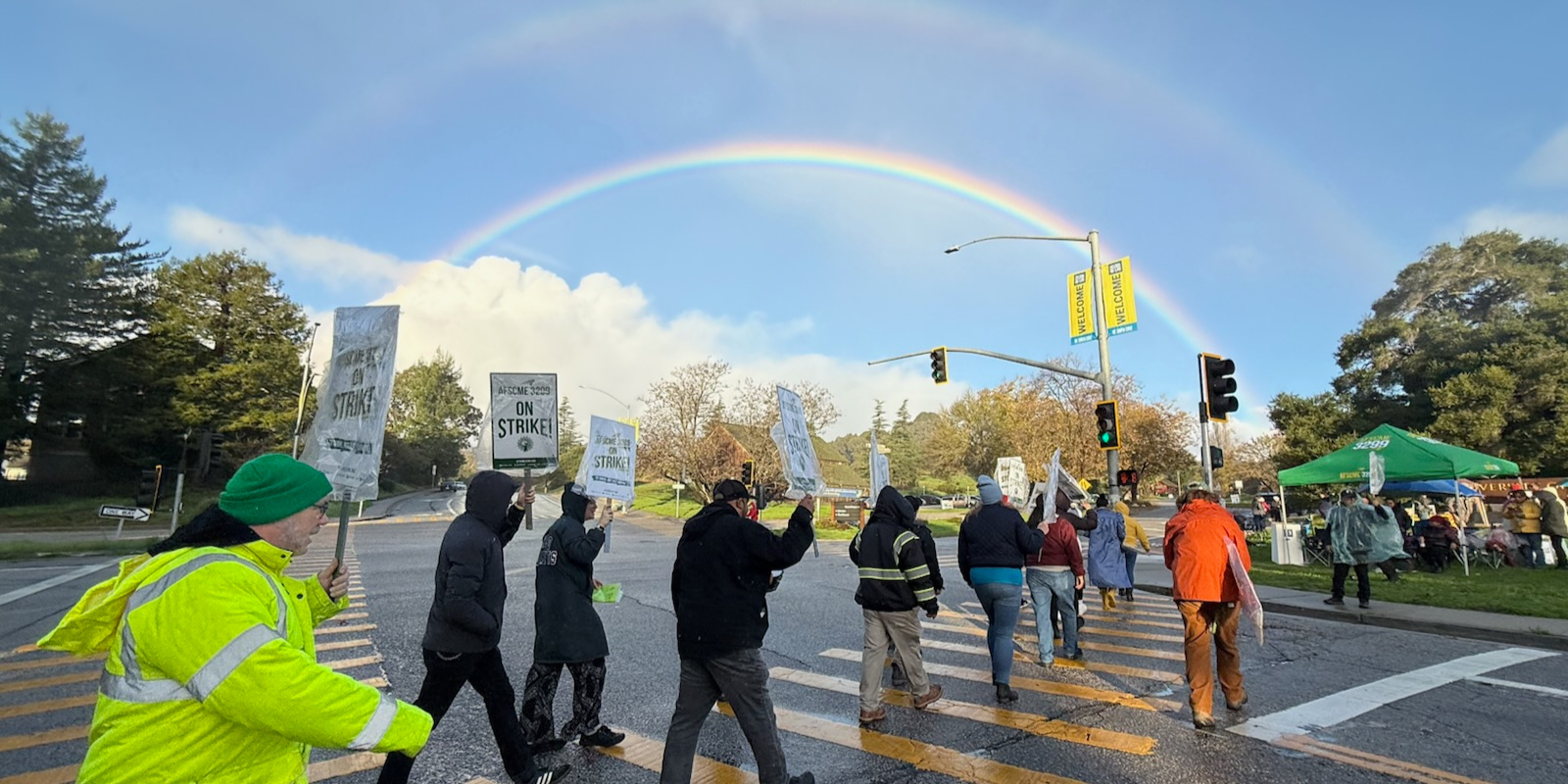Nearly 40,000 workers for the University of California system went on a two-day strike this week to protest the system’s failure to settle contracts addressing the cost of living and affordability crises facing its most economically vulnerable workers.
The UC service and patient care technical workers walked off the job Monday and Tuesday at all UC campuses and medical centers. They are represented by AFSCME Local 3299.
“During nearly two years of bargaining, UC has spent billions of dollars acquiring new facilities, lavishing exorbitant raises on its wealthiest executives and funding housing assistance programs to help ... ivory tower elites ... but it won’t offer its front-line workers enough to pay the rent or keep pace with the skyrocketing cost of groceries,” said Local 3299 President Michael Avant, who’s also an AFSCME vice president.
Several candidates for California’s governor joined the strikers.
Local 3299 represents UC custodians, food service workers, patient care assistants and hospital technicians who have been working without a contract for more than a year.
Recent media reports have detailed a growing affordability crisis facing these front-line UC service and patient care workers. Research has also detailed how these workers are being priced out of local housing markets by wage rates that have failed to keep pace with inflation. That has led thousands to leave their jobs and fueled a growing staff vacancy crisis throughout the UC system that threatens student services and patient care.
The strike comes as UC’s most recent financial statements show the system’s revenues and investment assets have nearly doubled over the past decade, with its unrestricted campus cash reserves increasing five-fold.
The university system has also approved at least eight new hospital acquisitions, expanded housing assistance for top executives, and granted its senior executives massive raises.
“During the pandemic, UC administrators routinely called us ‘essential heroes,’” Avant said. “We were the ones sanitizing facilities to slow the spread, answering the call button, and giving sick patients their breathing treatments. Today, we’re being excluded from housing assistance that UC gives to its wealthiest employees; being told to accept wages that offer less purchasing power than we had seven or eight years ago and being told that we should pay twice as much for our health insurance. It’s time for UC to get its priorities straight, and to treat us with the respect we’ve earned.”
